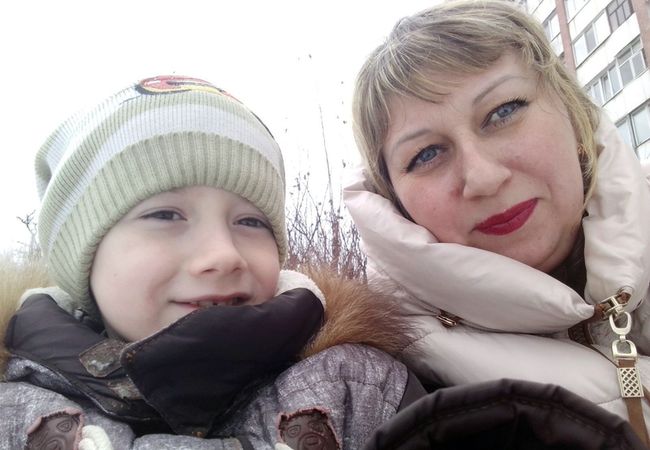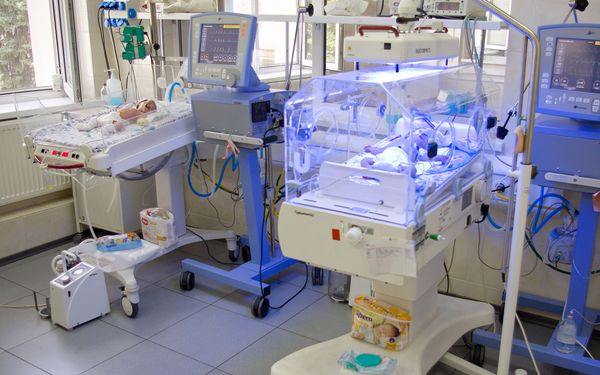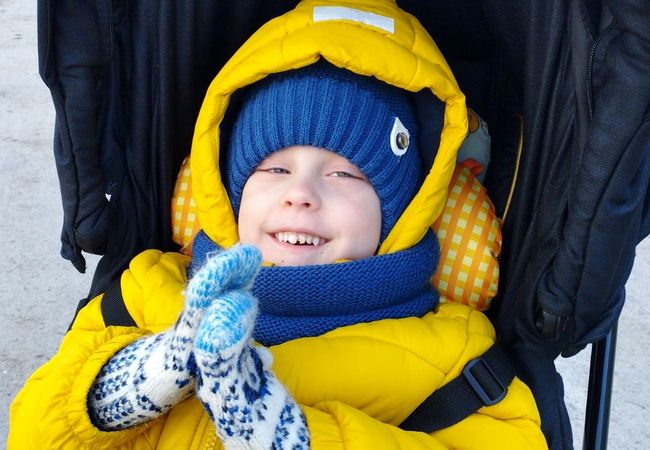
Annika, James, Joshua, Tatyana and Raissa were adopted from Russia and Ukraine. Jeff Klahn
When Camille and Jeff Klahn started packing in 2008 for their first summer vacation with their four newly adopted children, the children began to cry. They took one look at the suitcases and assumed the Klahns were sending them back to the Russian orphanages they were adopted from the year before.
The couple had gone to great lengths to ensure their children's transition would go smoothly. They meticulously planned each step of the youths' adoptions, complying with all the Russian government's many requirements. They arranged for interpreters to help out once the family arrived home in Brooklyn, Wis. The Klahns even created family albums with photographs of the boys and girls already included and took them to Russia to show the children the first time they met.
But the suitcases — to children who had never been on a vacation, who did not know what vacation was — could only mean a return to the orphanage. The four did not realize that their new parents' love was unconditional, that they would not be sent back.
"It never occurred to us — in our joy to bring them home and to show them their new rooms and toys and introduce them — that we should explain that this is forever," said Camille.
She added, "We are asking a lot of these children to trust us and believe that we are going to take care of them and not let them down. They are there (at orphanages) because every adult did let them down."

Jeff and Camille Klahn with their five children. Jeff Klahn
The Klahns — devout Christians who always dreamed of a large family but were unable to have children of their own — turned, like many other Americans, to foreign adoption for help in realizing those dreams. From 1999 to 2012, Americans adopted 242,602 children from outside the United States, 45,681 of them from Russia. In 2012, however, amid deteriorating relations between the two countries, Russia halted adoptions of its orphans by Americans.
For Jeff, a materials manager, and Camille, who runs a day care from their home during school hours, the financial costs of raising five children can be overwhelming.
But the Klahns, like other families, have found that perhaps the biggest challenge is connecting with children who have never felt attached to another person. This lack of attachment is common among children raised in orphanages overseas. Whether the ability to build strong relationships can be restored is explored in "The Dark Matter of Love," a documentary airing Sunday on Al Jazeera America. Camille and Jeff believe it can.
They adopted their first son, Joshua, from Ukraine in 2001.
When they met him at an orphanage there, Joshua was 3 years old, severely underweight and unable to walk or talk. He had been crib-bound his entire life, say the Klahns. After a year living with the couple, he was healthy and walking and talking.
At age 6, Joshua began to ask for a younger sibling. His parents decided to adopt again, hoping this time to find two children at once. Their only criterion was that the children be younger than Joshua, who was set on being a big brother.
It would be three years before they heard from the adoption agency they had contacted. When they did, Camille and Jeff were floored by what the agency asked: Would the Klahns consider a group of four siblings?
At first, Jeff said, "it seemed too big for us to do. How many seats could even fit in a van? We asked to see the kids' pictures, but out of curiosity, really."
Joshua was in favor of adopting all four, but his parents remained hesitant. But as a few weeks passed, Jeff and Camille kept thinking how, unless they intervened, the children would likely be split up and sent to different countries, raised to speak different languages.
"It came to one point where all of a sudden we couldn't not do it," said Jeff. Added Camille, "We had to lean on God."
In 2008, Annika, 7; James, 6; Tatyana, 4; and Raissa, 3, arrived in Wisconsin to join Camille, Jeff and Joshua. Five years later, the Klahns — seven strong — say they are a close-knit family and that all the children understand they will not be sent back.
They believe family bonds can be created, even though the process is different for older children and those adopted shortly after birth. The Klahns acknowledge, meanwhile, that they've been more fortunate than some other families, noting that the four siblings already had strong relationships with one another.
Many families have learned from the Klahns' experiences, including the Diaz family, the main subject of the documentary airing on Al Jazeera America. Seventeen Ukrainian and Russian children have been adopted by couples who went to the Klahns for guidance, they say.
Cheryl and Claudio Diaz, who already had a teenage biological daughter, traveled to Russia in 2011 to adopt a young girl and two twin boys. While in Russia — unable to speak the language and with their new rambunctious twin boys and a new daughter who seemed emotionless — they panicked and began to wonder if they had done the right thing.
In tears, Cheryl sent an e-mail to Camille, who answered immediately. "She wrote me the best e-mail ever," said Cheryl. "It let me know that I was at that time right where I was supposed to be and that things would change and when and how they would change when we got back home. I knew that we would get through it one step at a time."
It's the same advice the Klahns say they have given to many couples who have sat in their living room and asked them how they did it.
"Adoption is a wonderful opportunity to make a family," said Camille. "It takes time, but it can grow, and it can work."
She added, "I'm proud of my family. We have created something wonderful."



